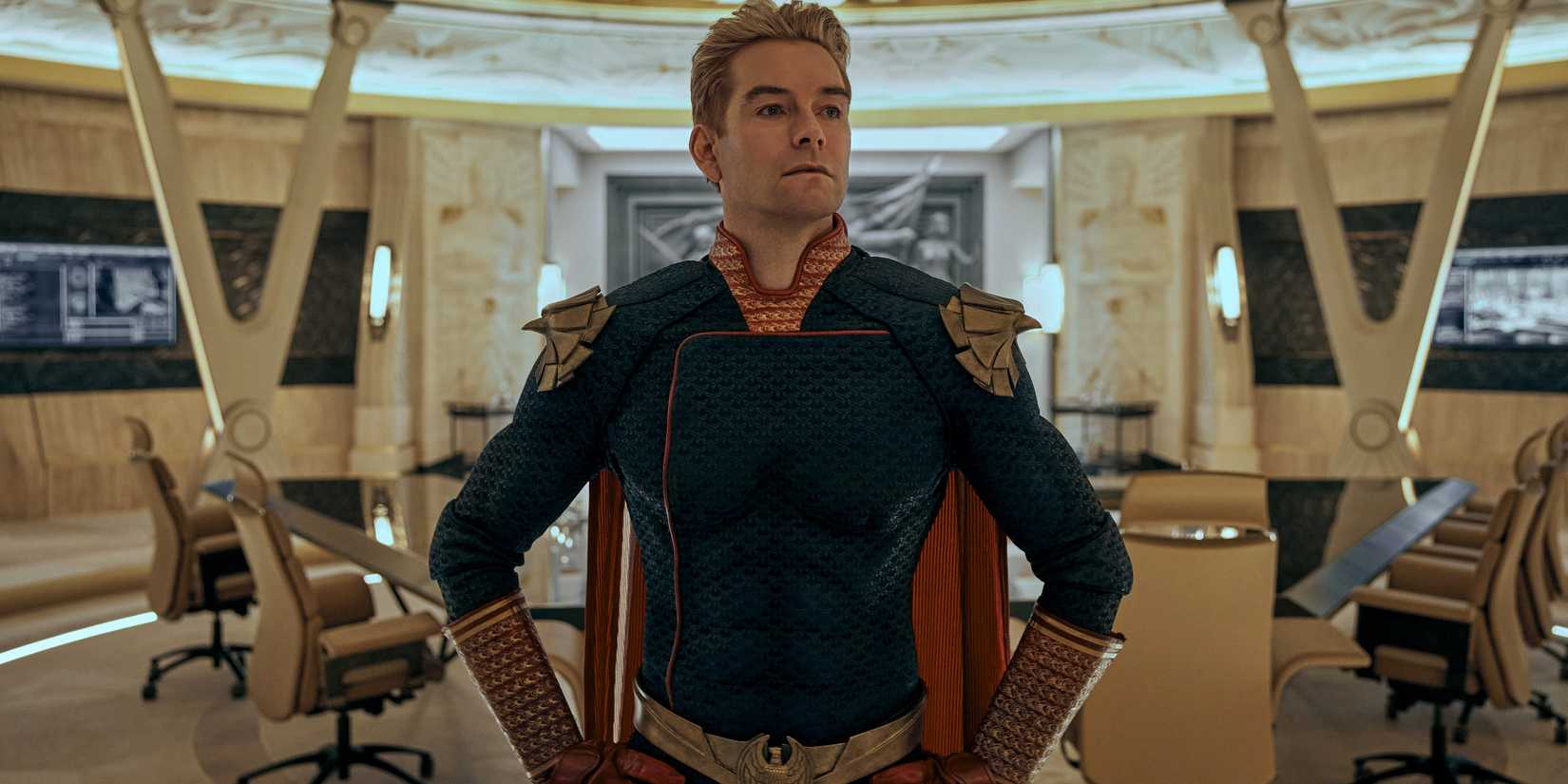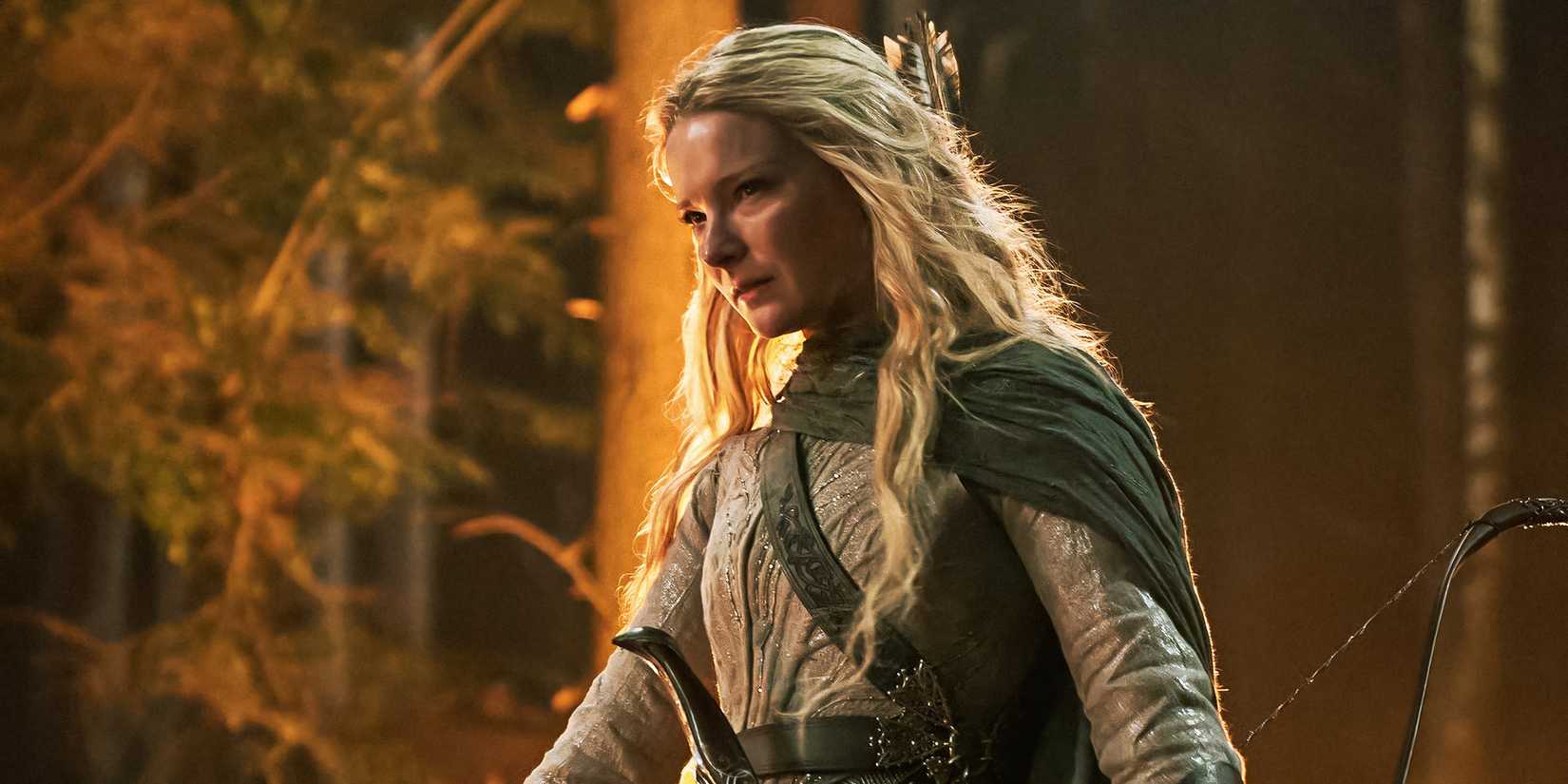Prime Video is on its way to fixing the biggest recent problem with streaming services. A lot of Prime Video TV shows tend to be revered for their high quality, from The Lord of the Rings: The Rings of Power to The Wheel of Time. This extends beyond a number of genres, but fantasy is perhaps the most prevalent.
The Rings of Power is just one upcoming Prime Video fantasy series that will prove how strong the streaming services have become in recent years. Even beyond that, though, there are many other new and returning Prime Video shows to get excited for, making the service a standout of the coming months and years.
The final few months of 2025 will have some major releases, with even more set for 2026. Be they more fantasy TV shows set for 2026 or the continuation of beloved Prime Video classics, like The Boys, Fallout, or Invincible, the next year is chock full of exciting big TV shows on the Amazon service.
Via several of these big TV shows, Prime Video is putting other services to shame. Not only is the consistent quality, size, scale, and reception to each major show doing so, but, beyond all that, the service is fixing an ongoing recent issue with streaming TV.
Prime Video’s Biggest Original Shows Aren’t Taking More Than 2 Years To Come Back
The issue in question is the growing expanses of time between seasons of the major streaming TV franchises. Netflix is perhaps the biggest culprit for releasing seasons of TV after three or more years. In recent history, though, and going into 2026, Prime Video is proving how it should be done.
Some of the service’s biggest shows have rarely gone more than two years between seasons. Shows like The Boys and Gen V are emblematic of this. The former show, by the time of The Boys season 5’s release date, will have had five seasons released in only seven years.
|
Prime Video Show |
Season 1 Debut |
Season 2 Debut |
|---|---|---|
|
The Lord of the Rings: The Rings of Power |
September 1, 2022 |
August 29, 2024 |
|
Reacher |
February 4, 2022 |
December 15, 2023 |
|
The Legend of Vox Machina |
January 28, 2022 |
January 20, 2023 |
|
The Summer I Turned Pretty |
June 17, 2022 |
July 14, 2023 |
Gen V, a spin-off of The Boys, was first released in 2023, with its second season releasing two years later in 2025. Then there is Fallout, a show that set an impressive Prime Video viewership record with the debut of its first season in April 2024. Only 18 months later, in December 2025, Fallout season 2 will be released.
Invincible is another of Prime Video’s big hitters. Despite the long wait for more content after Invincible season 1’s release, Prime Video is righting the ship. Invincible season 2’s two parts were released in November 2023 and March 2024, respectively. Invincible season 3 was then released less than a year later in February 2025, before season 4’s debut in the same month of 2026.
Prime Video’s Hits Show That There’s A Way For Streaming To Be More Efficient
Although I will admit that 18–24 months is still a long time to wait between seasons of TV, Prime Video is at least proving how streaming can be more efficient. This is still without cutting budgets, too, considering The Rings of Power is the most expensive TV show of all time with a budget above $1 billion.
Some of Netflix’s biggest hitters never have less than a three-year wait between seasons. The recently released Wednesday season 2, only eight episodes long, took three years to produce. By the time of One Piece season 2’s release in 2026, it will have been three years since season 1’s 2023 debut, continuing the frustrating trend.
Squid Game and Stranger Things are Netflix’s two biggest original series, with the former having three years and three months between season 1 and season 2. Stranger Things season 4 took three years after season 3, with the same being said for the upcoming season 5, marking just under a decade to produce five seasons of television.
All of this only makes Prime Video’s gaps between seasons seem more reasonable. Clearly, the streaming service is making things much more efficient when producing big TV shows or, at least, more efficient than its competitors. Be it quicker renewals or simply faster production timelines, Prime Video is leading the way for speedier releases.
3 Years Between Seasons Should Never Become The Norm For Television
If this sentiment was not already clear enough, the three-year gaps between seasons of TV are simply too much. The reaction that these gaps elicit from audiences is already proof of this. Many tend to find their interests in the likes of Wednesday season 2, Squid Game season 2, or recent installments of Stranger Things have either declined in the time between or vanished completely.
This is purely due to the time audiences are expected to wait between installments, which, aside from causing a deterioration of excitement, has its own production issues. For instance, the upcoming HBO Harry Potter reboot has many firmly believing that the young cast hired will be in their mid-to-late 20s by the time eight seasons are completed.
This not only exacerbates just how long the wait for TV seasons is becoming, but also diminishes the impact of a story about young children growing up in a dark wizard of war between the ages of 11 and 17. This is just one example of that specific issue, which the likes of Stranger Things and Percy Jackson and the Olympians have already typified recently.
Clearly, three years between seasons is too much. Older TV shows like Game of Thrones, on a similarly grand scale and budget to those that Netflix produces, used to release seasons each year. It is no coincidence that Game of Thrones was the pinnacle of pop culture for almost a decade.
HBO managed to capitalize on the show’s scale and the success that came with it, pumping out seasons at a level many thought impossible. Evidently, though, it was anything but. Regardless, modern streamers, especially Netflix, cannot seem to replicate the speed with which older TV shows were crafted, despite being made to a similar size.
Thankfully, though, it seems as though Prime Video is beginning to catch on. The studio’s approach in recent years is a testament to this. Although two years is still not exactly the wait audiences would prefer for installments of TV, Prime Video is still further ahead with quicker turnarounds than any of its current competitors, and only looks to further extend its lead going forward.

- founded
-
September 7, 2006
- first original series
-
alpha house
Source link





















Add Comment